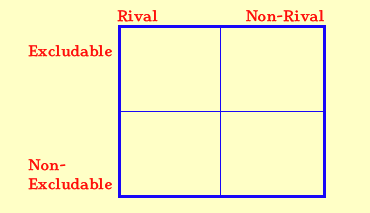
15. Karl Marx defined classes in terms of property relations because then all members of the class would have common interests. He assumed that because all members of the class had common interests, and because they would be aware of these common interests, he could talk about how classes would behave. In their Communist Manifesto Marx and Engels also assumed self-interest: "The bourgeoisie...has left remaining no other nexus between man and man than naked self-interests, than callous 'cash payment'."
a) Suppose that it is in the interests of capitalists as a class to restrict investment to raise the rate of return on capital. Will it be in the individual capitalist's interest to do so?
b) Suppose that it is in the class interests of the proletariat to work together to seize political power. Will it be in the interests of the individual worker to do so?
c) Marx assumed that self-interest translated into class interests because all members of the class had common interests. Can you see a free rider problem that he and Engels did not see? (Comment: This question is adapted from Mancur Olson's Logic of Collective Action (Harvard Univ. Press, 1965, p. 102-110.)
16. A Chicago public television station that obtained part of its funding through subscription drives claimed that only 10% of those who watched the station contributed. What is more puzzling to an economist, why 90% did not contribute, or why 10% did? Explain. Promotional gifts are very common in this type of fundraising. Since they cost the station, they reduce the effect of each gift. Why are they so common?
17. Bob Saylor notices that ships often wreck on a rocky reef off the coast where he lives. Reasoning that shippers would like to reduce the risk of shipwreck, he tells them that he will build a lighthouse if they will pay him.
a) Will he face a free-rider problem? Explain.
b) Will he face a problem of adverse selection? Explain.
c) Will he have a problem with moral hazard? Explain.
18. When music was distributed on vinyl records, there was no problem with music piracy. Now that digital distribution has arrived, there is a problem with music piracy. An economist would say that the reason music piracy is now a problem for music producers is that technology has made music less like a private good and more like a public good. Explain the economists' position in plain language that ordinary people can understand.
19. a) Those who produce computer software find that software piracy is widespread. There are a lot of people who use software they never paid for. From an economic point of view this is not surprising because software is very much like a public good. List the two characteristics of a public good and explain to what extent computer software has the characteristics.
b) Some very clever computer programmers have tried to make money by way of shareware. Shareware authors wrote clever programs, distributed them on electronic bulletin boards (back in the days before the world-wide web, which is when shareware was at its peak) and other low cost distribution methods. People could then try the software, and if they found it useful, they were asked to pay for the software. What obvious problem should an economist see with trying to make money with shareware?
20. Search the internet to find what a "club good" is. What are examples? How is it different from a public good? Also, search for "free rider" or "free rider effect." Can you find any interesting examples of free riders? (Do not forget those urls!)
21. Many textbooks have tables that classify several types of
goods on a table similar to that below. See if you can figure out
where each of the following should be placed:
a) A hamburger is an example of a private good. Where does it
belong?
b) The services of a lighthouse are an example of a pure public good.
Where does a pure public good belong?
c) A club good is a good that is available to many but for which it
is easy to charge. An example is cable TV. Where does a club good
belong on the table?
d) Fish in the middle of the ocean are commonly owned, or owned by no
one, which means the same thing. Where do fish in the middle of the
ocean belong on the table?

|
|
|